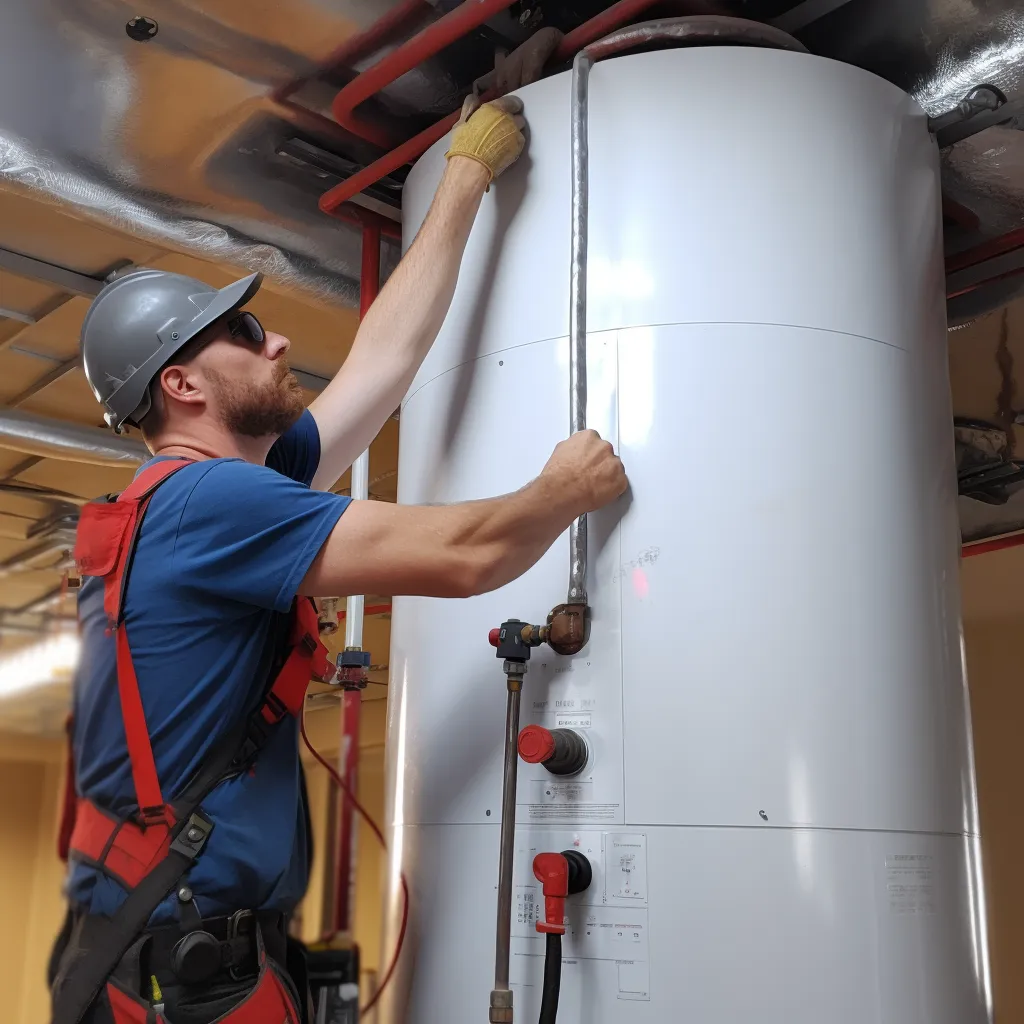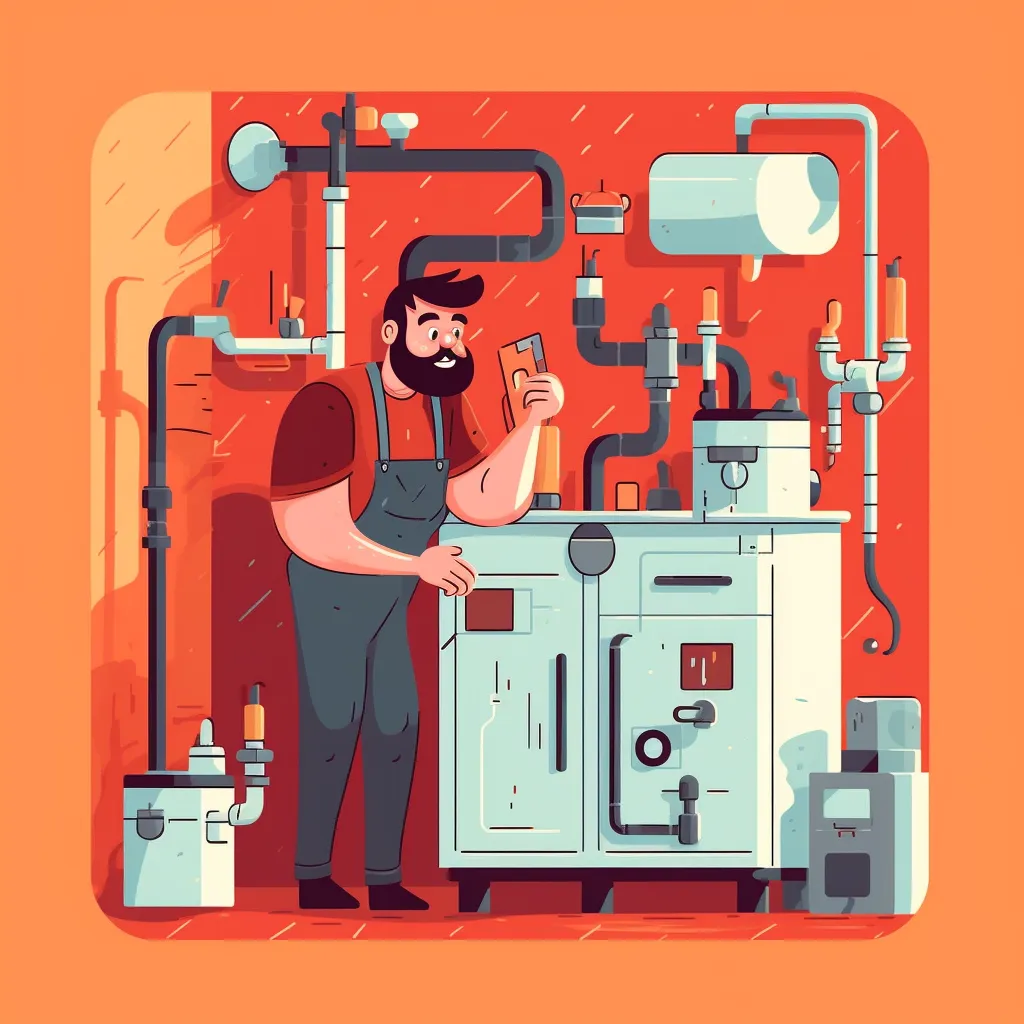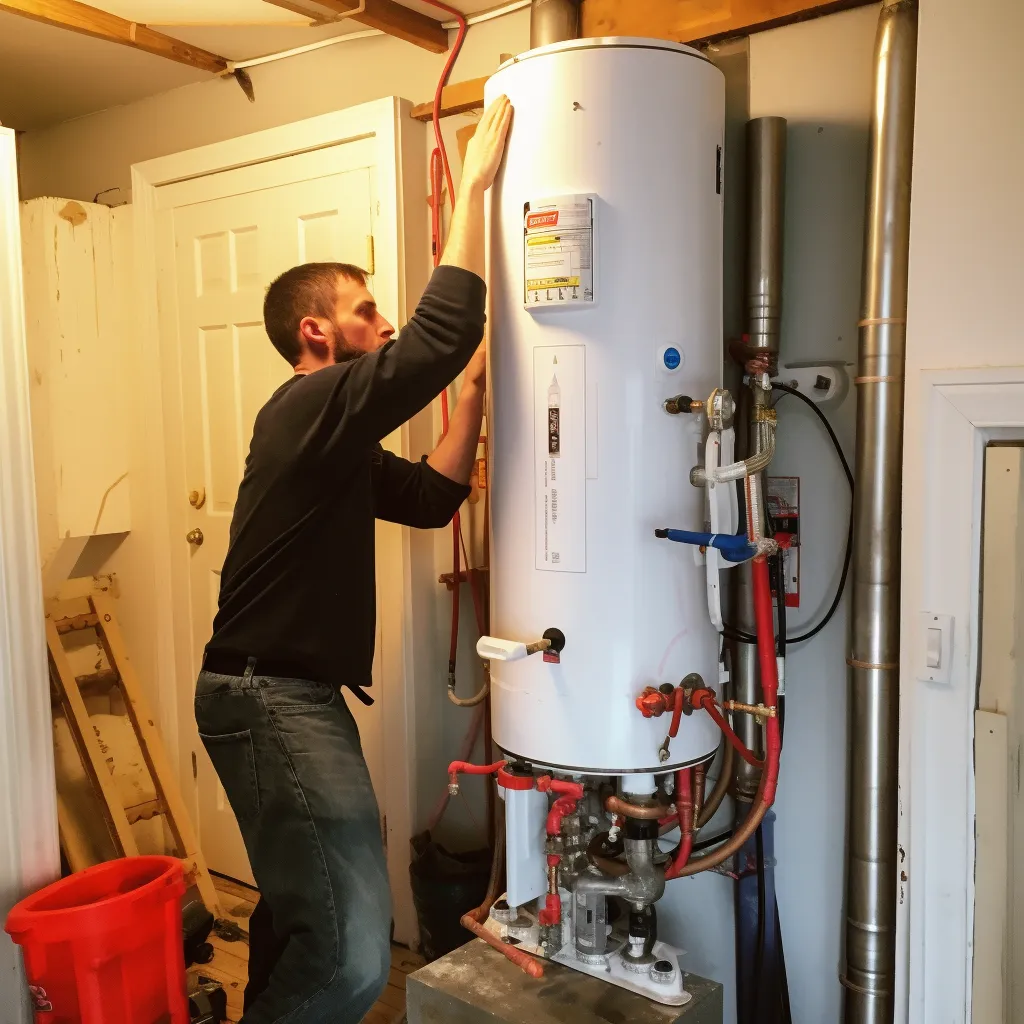Expert Pipe Installation And Repair Services in Chandler, AZ
At MIL-SPEC LLC, we pride ourselves on delivering superior pipe installation and repair services to homeowners throughout Chandler and surrounding communities. Our team of licensed, experienced plumbers brings military-grade precision to every project, ensuring your plumbing system operates at peak efficiency.

Our Specialized Pipe Installation And Repair Services
Our comprehensive pipe services include:
New Pipe Installation
We handle complete pipe system installations for new construction, home additions, and system replacements. Our team works with various materials including copper, PEX, PVC, and cast iron, selecting the best option for your specific needs and local building codes.
Emergency Repair Services
Available 24/7, our emergency response team quickly addresses urgent pipe issues to prevent water damage and restore your home's plumbing functionality. We use advanced diagnostic equipment to pinpoint problems accurately and implement lasting solutions.
Pipe Rehabilitation
Our rehabilitation services extend the life of your existing pipe system through various techniques including pipe lining, spot repairs, and selective replacement of damaged sections.
Water Line Services
We specialize in main water line installation, repair, and replacement, ensuring reliable water supply to your home while preventing costly water waste.


Enhanced Services And Features
Advanced Diagnostic Technology
1. Video pipe inspection for accurate problem identification.
2. Leak detection equipment for non-invasive diagnostics.
3. Pressure testing to ensure system integrity.
4. Thermal imaging for hidden leak detection.
Quality Materials & Workmanship
1. Use of industry-leading pipe materials and fittings.
2. Comprehensive warranties on all installations.
3. Strict adherence to local building codes.
4. Detailed documentation of all work performed.
Customer-Focused Approach
1. Transparent pricing with detailed estimates.
2. Flexible scheduling options.
3. Clean worksite practices.
4. Regular project updates and communication.

Common Pipe Emergencies In Chandler Area
Homeowners in Chandler and surrounding communities frequently encounter these plumbing emergencies that require immediate professional attention:
Burst Pipes
Temperature fluctuations, aging infrastructure, and water pressure issues can cause pipes to burst suddenly. This often results in immediate flooding and requires emergency intervention to prevent extensive property damage. Chandler's extreme summer temperatures can particularly stress plumbing systems, making regular maintenance crucial.
Slab Leaks
Common in Arizona's shifting soil conditions, slab leaks occur when pipes beneath your home's concrete foundation crack or break. Signs include unexplained warm spots on floors, the sound of running water when fixtures aren't in use, and unusual spikes in water bills. Left unaddressed, slab leaks can compromise your home's structural integrity.
Root Intrusion
Chandler's native plants and trees have extensive root systems that can infiltrate and damage underground pipes. This often leads to blocked drainage, sewage backups, and pipe collapse. Regular inspection can identify potential root issues before they become emergencies.
Corroded Pipes
Older homes in Chandler often have galvanized or copper pipes that naturally corrode over time. This can lead to water discoloration, reduced water pressure, and eventual pipe failure. Our team specializes in identifying corrosion risks and implementing timely replacements.
Failed Joints and Connections
High water pressure and natural settling can stress pipe connections, leading to leaks at joints and fittings. These issues often manifest as drips or minor leaks before developing into major problems.
Main Water Line Emergencies
Breaks in main water lines can flood yards, compromise foundations, and leave homes without water service. Common causes include soil movement, aging pipes, and construction accidents.

Service Area
MIL-SPEC LLC proudly serves:
Chandler
Gilbert
Mesa
Tempe
Queen Creek
San Tan Valley
Phoenix (East Valley)

The Importance Of Immediate Action
When pipe issues arise, immediate professional response is crucial for protecting your home and finances. Here's why rapid intervention matters:
Preventing Catastrophic Damage
Water damage can escalate dramatically within hours. A small leak can saturate walls, floors, and ceilings, leading to structural weakness and collapse. In Chandler's climate, even minor water issues can quickly create perfect conditions for destructive mold growth, which poses both structural and health risks.
Cost Management
Quick response to pipe issues typically results in significantly lower repair costs. What might start as a $500 repair can escalate into thousands of dollars in damage if left unaddressed. Additionally, insurance companies often require proof of prompt action to approve claims related to water damage.
Protecting Home Value
Water damage can dramatically impact your home's resale value and must be disclosed to future buyers. Prompt repair helps maintain your property's worth and prevents long-term depreciation. This is particularly important in Chandler's competitive real estate market.
Health and Safety
Leaking pipes can create dangerous conditions including:
1. Electrical hazards from water contact with wiring.
2. Slip-and-fall risks on wet surfaces.
3. Respiratory issues from mold exposure.
4. Contaminated water exposure.
5. Foundation instability.
6. Ceiling collapse risks.
Water Conservation
In Arizona's desert climate, water conservation is crucial. Even small leaks can waste thousands of gallons annually, impacting both the environment and your utility bills. Immediate repair helps conserve this valuable resource and keeps your water bills manageable.
Preventing Secondary Issues
Quick action prevents the cascade of secondary problems that often follow pipe issues:
1. Foundation damage from water seepage.
2. Insect infestations attracted by moisture.
3. Paint and wallpaper damage.
4. Warped flooring and cabinetry.
5. Damaged electrical systems.
6. Compromised insulation efficiency.

Why Choose MIL-SPEC?
Local Expertise That Matters: With deep roots in Chandler and the surrounding communities, we understand the unique challenges posed by local soil conditions, climate, and building practices. Our experience includes:
1. Extensive work with various home styles and ages common in Chandler.
2. Intimate knowledge of local building codes and permit requirements.
3. Understanding of regional water quality issues and their impact on plumbing.
4. Experience with desert climate-specific plumbing challenges.
Advanced Technology and Techniques: We invest in the latest diagnostic and repair equipment to provide superior service:
1. High-resolution video inspection systems.
2. Acoustic leak detection technology.
3. Hydro-jetting equipment for superior pipe cleaning.
4. Trenchless repair capabilities.
5. Digital pressure testing systems.
Comprehensive Service Guarantee: Our work comes with iron-clad guarantees that protect your investment:
1. Lifetime warranty on many installations.
2. 100% satisfaction guarantee on all services.
3. Free follow-up inspections.
4. Transparent pricing with no hidden fees.
5. Written warranties that transfer with property ownership.
Professional Team: Our technicians are the best in the industry:
1. All plumbers are licensed and insured.
2. Regular continuing education and certification.
3. Background-checked and drug-tested.
4. Ongoing training in latest techniques Professional uniformed staff.
Customer-First Approach: We prioritize your experience:
1. 24/7 emergency response capability.
2. Flexible scheduling options.
3. Clean job sites with protection for your property.
4. Detailed documentation of all work.
5. Regular communication throughout projects Upfront pricing with no surprises.
Making The Right Choice For Your Chandler Home
New pipe installation or replacement represents a significant upgrade for your home's value, efficiency, and daily comfort. In Chandler's unique climate, choosing the right materials and installation team makes all the difference in system longevity and performance.
Take Action Today
Ready to upgrade your home's plumbing system? Here's how to get started:
1. Schedule a Free Inspection: Get a detailed system assessment. Learn about material options. Receive a clear, written quote. Review financing choices.
2. Book Your Installation: Pick convenient dates. Plan water access times. Prepare your home. Meet your installation team.
Contact MIL-SPEC LLC Today
Located in Chandler, we serve homeowners throughout the East Valley with expert pipe installation and replacement services. Call now to schedule your free consultation and take the first step toward a more efficient, reliable plumbing system for your home.

Frequently Asked Questions About Pipe Replacement
Q: How long does a typical pipe replacement take in Chandler?
A: Most single-family homes take 3-5 days. Small homes might need just 2-3 days, while larger homes can take 5-7 days. The timeline depends on your home's size, pipe layout, and material choices.
Q: Can I stay in my home during pipe installation?
A: Yes. We maintain access to at least one bathroom and the kitchen. Water service interruptions typically last 4-6 hours per day, scheduled around your family's needs.
Q: How do you protect my home during installation?
A: We use dust barriers, floor protection, and covered walkways. Our teams clean up daily and remove all debris. Your belongings stay protected with drop cloths and careful workspace management.
Q: Which smart water monitoring systems work best in Chandler?
A: Leading systems like Flo by Moen, Phyn, and StreamLabs work well with our water conditions and integrate with major smart home platforms.
Q: What happens if the smart system detects a leak while I'm away?
A: The system sends instant mobile alerts and can automatically shut off your water. You can also give access to trusted neighbors or our service team for backup.
Q: What pipe materials hold up best to Chandler's hard water?
A: PEX and CPVC resist mineral buildup better than traditional materials. Both handle our temperature swings well and last 25+ years with proper installation.
Q: Will new pipes improve my water pressure?
A: Yes. Modern pipes with proper sizing often increase pressure by 20-30% compared to older, scaled pipes.
Q: Does insurance cover pipe replacement?
A: Most insurance policies cover sudden pipe failures but not gradual wear. We can help document issues for claims and recommend coverage options.
Helpful Resources
U.S. Environmental Protection Agency Water Infrastructure Resources (1)
Chandler, AZ Building Safety Division (2)
Contact Us
GET IN FULL TOUCH
PHONE:+(480) 470-3216
EMAIL:
adam@waterheaterchandler.com
Mil-Spec LLC
Chandler, AZ 85226
